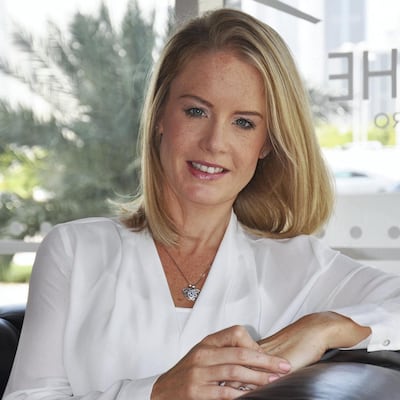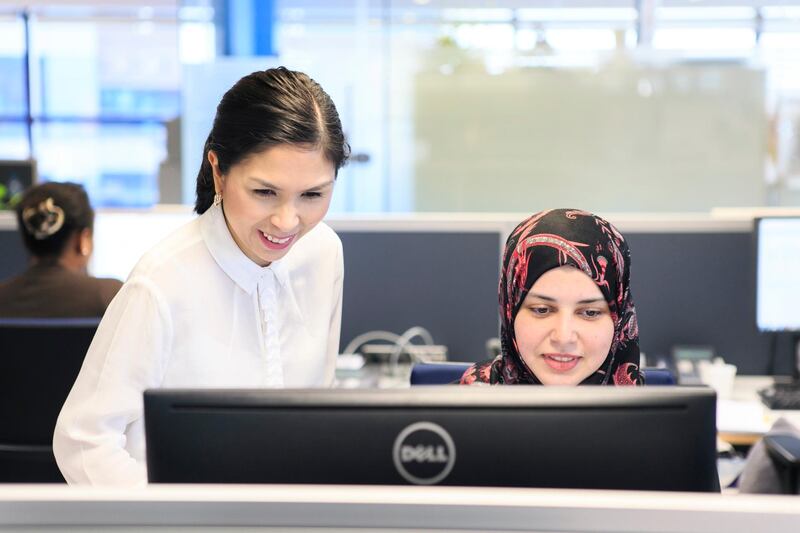UAE companies should adopt a more flexible approach to working hours to improve productivity and boost staff morale, recruitment experts have said.
Employment specialists said some firms held a “dinosaur” mentality when it came to the workplace environment, and needed to be open to new ideas.
Businesses in the Emirates have suffered from a high turnover of staff, sometimes losing valuable employees after very short periods.
But experts said a less rigid approach to traditional office hours, combined with an improved focus on better reflecting staff values could help with recruitment and retention.
Being more aware of cultural sensitivity when taking on employees from different backgrounds and nationalities was also a key factor, they said.
“Many companies still have a dinosaur approach to working hours and are not flexible at all,” said Louise Karim, managing director of recruitment agency Mums@Work in Dubai.
“They want staff behind a desk for eight hours a day. That is simply not productive and you won’t attract the right type of talent with that attitude.”
A survey of more than 500 public and private companies across the UAE in 2017 drew stark conclusions about the country’s job market.
The research by consultancy Knowledge Group found 46 per cent of companies said Emirati employees quit their jobs within three years.
It also showed 17.3 per cent of businesses said national staff resigned within 12 months and 18.7 per cent said Emiratis left after one to two years.
A 2018-19 report by recruitment firm Nadia was more positive, with staff turnover down from 11 per cent to just 8 per cent.
It also found employers were beginning to understand the value of building staff loyalty, and that new government initiatives such as new visa rules and property ownership schemes were encouraging foreign residents to stay longer.
Despite this, Ms Karim said it remained clear that some smaller UAE employers continued to ignore the importance of creating a positive, productive working environment.

She said a greater focus was needed on staff morale and their mental well-being, and that progress in these areas could improve staff retention.
“Apart from the big multi-nationals, I don’t think many companies here are catering for the wellness and mental health of their staff,” Ms Karim said.
“I don’t think there is enough focus on these issues compared to similar companies in other countries like the UK.
“It makes financial sense [to encourage more flexible hours] because you will need less office space if there are more staff working remotely.”
Other recruitment consultants also urged employers to be more aware of potential cultural sensitivities among staff.
Most of the UAE’s workforce consists of foreign nationals taking advantage of the lifestyle and tax benefits.
The resulting diversity of language, background and politics can lead to awkward clashes unless employers take care to avoid pitfalls.
“There are different cultures coming together in the UAE with very different expectations,” said Ian Jenkins, head of Middle East and Africa for Dubai recruitment agency Carter Murray.
“It varies from office to office, but some people might come from a background where they refer to their bosses by formal titles like 'Mr'.
“For some this might come across as too formal and unnecessary.”
Mr Jenkins gave another often presented example of different nationalities holding differing views.
“A boss from one part of the world might ask someone from a different culture to give their views on their plan," he said.
“That person might find it disrespectful to give their opinions. They may struggle to feel they can give their opinions or express thoughts in the workplace.”
Catherine Darroue, a senior director with health insurer Aetna International, also stressed the importance of a flexible office environment.

Ms Darroue said companies, especially those with a high number of staff from overseas, needed to understand that they had responsibly for employees outside of the workplace.
“Companies have a duty of care to help expats settle in the country,” she said as an example.
“Sometimes, if someone is coming over with their spouse and children, that spouse can feel left out which creates tension at home.
“That’s why we have annual family days where spouses get an opportunity to see their partner’s working environment and get to know their colleagues.”








